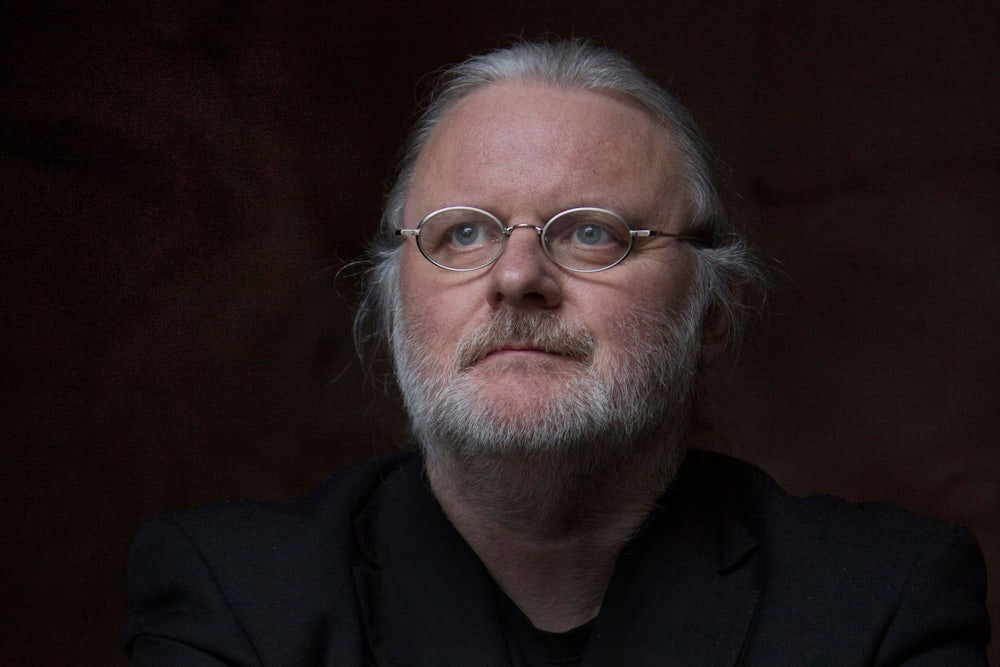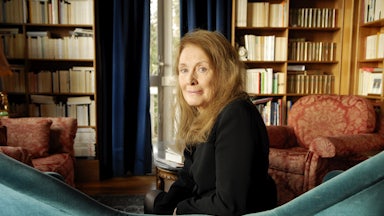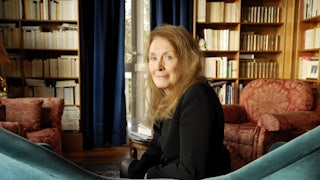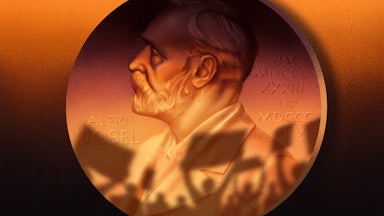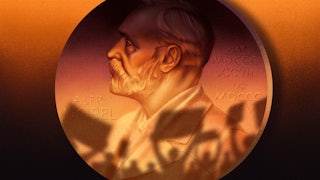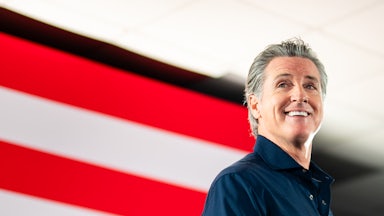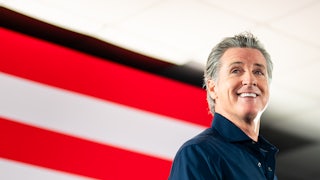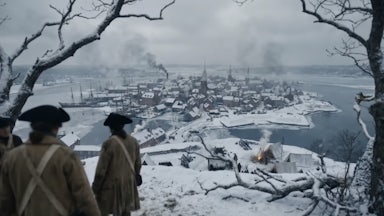After enormous dramas, intense scandals, a notable awardless year, a subsequent year in which one of the winner’s politics were very ... fraught, gossip, cheating, resignations, and Bob Dylan, the Nobel Prize for literature has definitively exited its flop era—for now. Louise Glück, Abdulrazak Gurnah, Annie Ernaux, and now Jon Fosse, who was awarded the prize on Thursday: That’s four serious winners in four years, all killer no filler. Glück was a long shot, Gurnah was a shock, and Ernaux and Fosse were obvious choices that happened to be correct ones. Together, these four winners make an unusually strong case for the Nobel as something more than a cultural phenomenon or a subject of jokes and speculation (by the way, the Nobel Preview will be back next year), and instead as something more surprising: a literary award that actually gets it right.
Since the prize’s return from its 2018 hiatus, its presenters have been insistent that this is exactly what they are doing: nothing more or less than honoring the greatest literature in the world. There was, in this, always an implicit—and often deeply unfair—criticism of the prize’s previous iteration, led by the late Sara Danius. That Nobel Prize was thrilling, weird, unpredictable—and at times deeply confusing. It was a prize willing to honor an oral historian (Svetlana Alexievich); a massively popular novelist with an interest in genre fiction (Kazuo Ishiguro); and a man who has written songs about wanting to have sex with a car, a pie, and Alicia Keys (Bob Dylan). This new Nobel Prize, by contrast, is more rigid and predictable, at least in terms of its criteria: It awards serious books written by serious people that are read by other serious people who write long threads on Twitter about how serious they are about reading the serious writers’ serious books.
To be fair, this phase of the Nobel Prize got off to a wobbly start, to put it lightly. In 2019, the Nobel was awarded to Olga Tokarczuk and Peter Handke, which brought with it the unfortunate implication that if you were a woman writing adventurous fiction in Polish, the only way you’d get a Nobel would be by sharing it with a writer who, while a great European novelist, would also fit right in on Bill Maher’s Club Random podcast. (We anticipate that at some point in the next six months, Handke will appear on the pod, joint in hand, discussing the War in Ukraine with a man who makes Alec Baldwin look smart.)
Still, the prize has since settled into a comfortable groove. Glück has a strong claim to being the greatest English-language poet and is an esteemed professor at a university in Connecticut—no, not UConn; no, not Wesleyan. Gurnah, arguably as surprising a selection as Dylan—anyone who claims to have heard of him before he was given the Nobel in 2021 is also the kind of person who says they prefer Dylan’s mid-’80s work to his Golden Age (1997–present)—is eminently deserving, even if he’s still under-read. And Ernaux’s incisive excavations of her own past make her one of the greatest living writers in any language, even if it is unfortunate that the language she writes in is French.
Fosse has a growing fan base, and despite having written a septology, he isn’t a difficult writer—though he will undoubtedly be characterized as such in the coming days. He is certainly a writer’s writer, however—specifically, the kind of writer’s writer who makes appearances in other writers’ books, as when he shows up in the fifth volume of fellow Norwegian Karl Ove Knausgård’s monumental My Struggle: No, Not the German One. In that book, Fosse tears apart one of Knausgård’s poems, telling him that only one phrase—“widescreen sky”—has any value. This is why Fosse is a Nobel laureate and Knausgård is currently manning the merch table on Wilco’s European tour. Knausgård’s response was to write a second poem, consisting of a single word—the word is “cunt”—written more than 300 times in succession. (Knausgård chickens out and doesn’t submit it, though, as it happens, “Widescreen Sky” is also the name of Knausgård’s favorite Wilco song, from 2017’s Shit Box.)
If there is a Jon Fosse drinking game in the coming days—and there shouldn’t be, given Norway’s high rate of alcohol abuse and its centrality to Fosse’s masterpiece, Septology—it should revolve around the words “difficult” and “dreamlike.” To be fair, Fosse’s novels are dreamlike: They’re weird and circuitous; characters morph in and out of one another; his novels often consist of only a single sentence. (This is only sort of true: They’re usually a bunch of sentences connected by conjunctions and punctuation—and have lots of dialogue.) Fosse is, moreover, most famous globally as a playwright—indeed, he has a claim to being the most renowned living playwright in the world—something that will likely be underplayed in English-language media in the coming days.
Indeed, Fosse is, like Lady Gaga—someone he almost certainly has never heard of—a triple threat: playwright, poet, novelist, mostly in that order. “My worry is that people will focus on Fosse the novelist, because novels are the most prestigious form of creative writing,” the Icelandic author Kári Tulinius told The New Republic. “But I think he’s at his most inventive and thrilling as a poet and playwright.”
Unlike Gurnah and Ernaux—and, for that matter, Handke—there is no political subtext to Fosse’s win, unless we’ve missed a subtle message about the need to protect Norway’s fjords, which heavily feature in Fosse’s work (and are legally required to heavily feature in all Norwegian art), from the ravages of climate change. Fosse is a writer who uses language, typically in slow, repetitive ways, to convey emotions and experiences that other art forms cannot.
He is not a dour writer, however. “Many people have stressed the sublimity of Fosse’s writing—a sublimity verging on divinity—but few have pointed out how funny he can be as a novelist and a playwright,” the critic Merve Emre, who wrote about Fosse for The New Yorker last year, said in an email. “In Septology, there is the longing for grace, for deliverance, yes, but also for ‘a simple open-faced ground-beef sandwich with onions’ (in Damion’s great translation). The basic drives of peoples’ bodies—hunger, desire, death—bring them down to earth and that’s where they must remain— where they must wait, in the company of others, for a redemption that may or may not come.” (Shortly after the prize was announced, Emre highlighted another overlooked aspect of its significance: “Jon Fosse: a win, once again, for literary hotties,” she wrote in a D.M.)
